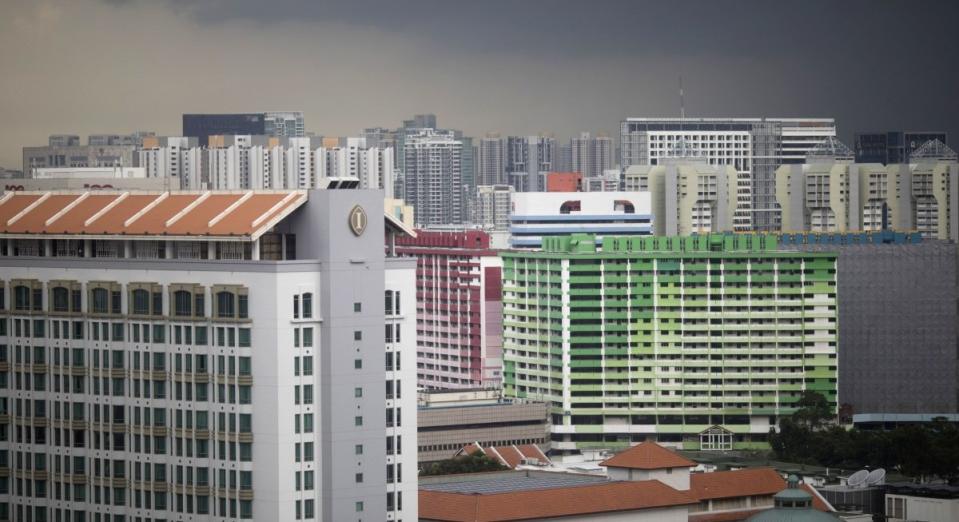Singapore property sector 'resilient' despite global slump; CDL and CLI preferred picks: Credit Suisse

Analysts are expecting the Singapore housing sector to show growth of 3% to 5% for 2023 even as the global market slump deepens.
Credit Suisse research analysts say the Singapore property sector will be a “beacon of light” in 2023 and prove to be resilient despite the anticipated global housing slump.
In their report dated Jan 13, analysts Louis Chua, Nicholas Teh and Melissa Leong say they are expecting Singapore to show modest price growth of 3% to 5% for the year even as the global market “slump” deepens and central bank rates increase. “Despite broadly higher rates, our scenario analysis suggests affordability continues to be healthy for the average household, given wage growth momentum amid a tight labour market,” they say.
According to the analysts, this is consistent with the Monetary Authority of Singapore’s (MAS) findings that most households should be able to continue to service their debt under stress assumptions of even a 400 basis points (bps) increase in rates and a 10% income reduction.
Says the Credit Suisse team: “In addition to stability in the residential market, we highlight that a sustained rise in property prices is also consistent across the three ‘Cs’ of affluence in Singapore: such that the appreciation in cars and country club memberships have far outpaced that of housing, underscoring the wealth creation and net inflows of global talent and wealth in Singapore in recent years.”
For the near future, they expect housing demand to be robust due to strong household formation and shrinking household sizes, with near record low unsold inventory supporting firm demand-supply fundamentals.
Between 2016 and 2021, the number of one- and two- person households increased by 40% and 20% respectively, with the record oversubscription of Housing Development Board flats and 72% one-month take-up rate of private new launches in 2022 reflecting “strong underlying local demand”. At the same time, new supply is likely to be muted in the foreseeable future, despite a mere 15,777 unsold units, with only 0.6 years of inventory for the mass-market segment.
Given the easing of residential price growth in 2023 — in line with MAS’s core inflation forecasts of 3.5% to 4.5% — the analysts do not expect cooling measures to be imminent. According to the analysts, the two key factors to watch for are foreign buying, which has rebounded from the pandemic lows of 3% to 7% in 4Q2022, and speculative activity, where sub-sales have also risen off the lows of 2% to 6% of secondary sales.
Meanwhile, amid a tight labour market, there continues to be healthy hiring intent by firms, with 9M2022 employment change at a 10-year high. Historic low vacancy rates have driven private rents up 24% y-o-y and HDB rents up 22% y-o-y on average.
“Still, we highlight the government’s concern that ‘rising rental prices may affect Singaporeans who need to rent, as well as global talent’. While not impacting developers per se, we do not rule out any targeted measures to address renters’ concerns, should steep rent growth persist,” they add.
For the Credit Suisse team, near term drivers for the Singapore property sector include the positive residential outlook that is supportive of residentially-focused developers, such as City Developments Limited (CDL) and UOL Group, with the former having the most upcoming launches. China’s reopening and accommodative fiscal and monetary policies should also benefit CapitaLand Investment (CLI), whose portfolio comprises 35% Chinese assets under management (AUM), while hospitality tailwinds continue to be supportive for all entities, particularly for CDL and UOL.
From a longer term perspective, the analysts believe significant restructuring potential across companies is only a matter of time, with the ability to unlock latent value “laying in the hands of management”. Their key points to consider include a real estate investor management (REIM) transformation for CLI as well as a merger with Mapletree, a portfolio rebalancing for CDL’s Millennium & Copthorne (M&C), the value unlocking of UOL’s commercial assets and Singapore Land Group (SingLand), and Frasers Property Limited (FPL) unlocking a liquidity discount.
In addition, the analysts see that the market has now looked past the risk of potential cooling measures, given an increasingly diminished impact on share price performance as seen in the recent December 2021 and September 2022 measures. With valuations across the sector looking attractive, the Credit Suisse team prefers CDL and CLI.
“CDL is our top pick to tap on the residential theme, where despite a 22% outperformance in 2022, it continues to trade at an attractive price-to-book value (P/Bv) of 0.8x,” they say.
Meanwhile, CLI is our preferred pick for investors who may be residentially “agnostic”. “CLI is set to capitalize on near-term opportunities to build long-term value amid China’s reopening, while demonstrating a clear 5-year transformation plan,” explain the analysts.
As at 11.16am, units in CDL were trading 7 cents or 0.88% up at $8.01, while units in CLI were trading 1 cent or 0.26% up at $3.86.
See Also:
Click here to stay updated with the Latest Business & Investment News in Singapore
CapitaLand India Trust in $201 million forward purchase of development in Bangalore
CapitaLand Investment: Liquid balance sheet throws up growth opportunities
Get in-depth insights from our expert contributors, and dive into financial and economic trends

 Yahoo Finance
Yahoo Finance 